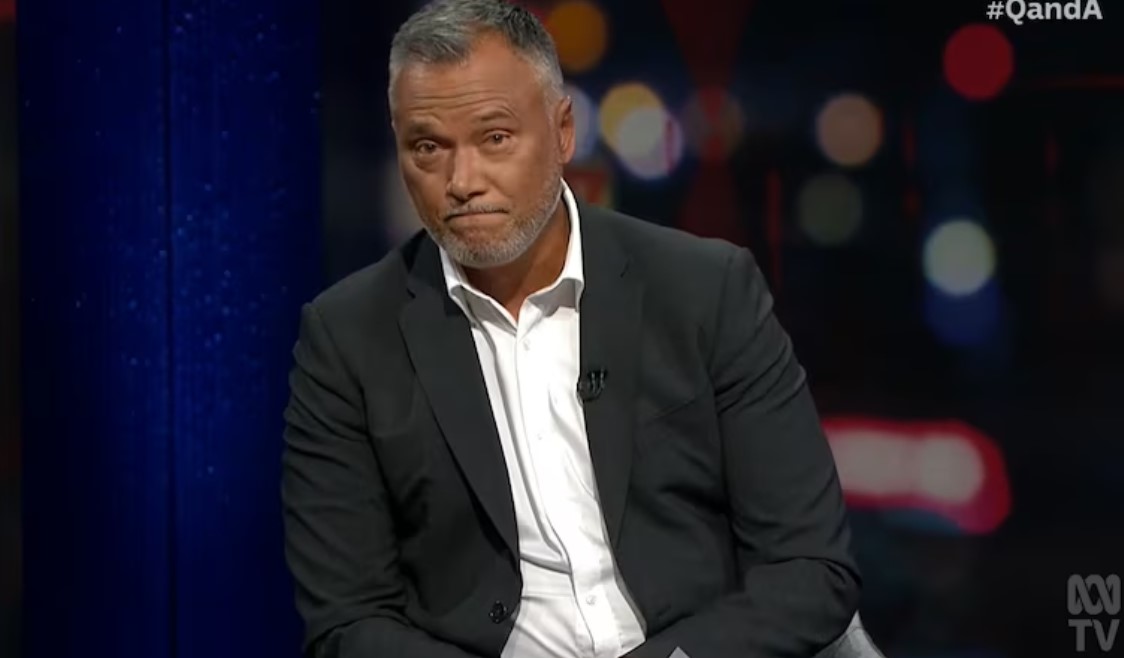
Stan Grant’s last appearance on Q&A on Monday, 22 May. Photo: ABC.
Whenever I write these columns, I do so knowing there’s a fairly high chance someone, somewhere, will take offence.
It rarely matters what the subject is. I could be enthusiastically espousing the work of the Salvation Army or the joys of ice cream on a summer’s afternoon; whatever it is, you can guarantee somebody will take umbrage.
Just so you know, I always read the comments at the bottom of each article I write. Quite often, they are points well made, introducing a new angle or challenging a fact I have dubiously included in my rant.
What I nearly always find is our correspondents are very learned, much more so than myself, and bring in-depth responses and analysis of the columns we write. Quite often, they have inside knowledge of the topic and, through the use of usually not-so-clever noms de plume, bring a whole new insight to the issue.
And then there are those who obviously have not even read the column or have failed to grasp its intent and head off on a tangent with expletive-laden vitriol that I’m sure would make a sailor blush.
It doesn’t really bother me. I’ve come to terms with the fact that a handful of keyboard warriors who are hardly ever brave enough to put their real name behind their diatribes and rarely have more than a handful of followers on social media want to hate.
When you write a column, be it as a media operative, a columnist, an expert or just someone with an opinion, you have to expect to wear some flak. Of course, it’s not right. Of course, it can be hurtful. But if you want to be a player in these affairs, you must be prepared to pay the cost.
The easy solution is don’t read the comments. Switch off your social media. Don’t feed the trolls. Develop a thick skin.
Before the trolls jump in here and remind me I am a privileged middle-class white male, yes, I am. And I will never know what it’s like to be abused for the colour of my skin, my sexual preferences, or my religious beliefs.
Attacks of this nature are abhorrent, and those responsible must be called out. Whether it be on social media, over the fence at a sports ground, or just walking down the street, we should never stand by and ignore it.
The team who presented the ABC’s Coronation coverage were always going to find themselves in the firing line. The monarchists were watching very closely, looking for even the slightest example of anti-royalist sentiment.
Obviously, they didn’t need to wait too long or look too hard to find it. It’s well known now that most of the panel were very strident in their republican views. How the panel expected these views to go over with an audience who were clearly very keen to watch the coronation of the King should not have been a surprise.
Were they the right panel for the occasion? Was the tone of the conversation right? Did they read the room? Probably no to all three.
Should they have expected criticism as a result? Absolutely. Should that criticism include racist and sexist slurs? Never.
Stan Grant has now announced he will step away from his public roles on the ABC. It’s a big price to pay for a man who has fought long and hard to have his voice heard and respected in Australia but has been worn down by the racist and personal attacks.
By all means, Grant should have been challenged for the views he expressed. He expects that sort of response every time he ventures forth an opinion. But we still have a long way to go until we as a nation can have a mature discussion on these important issues.
Original Article published by Ross Solly on Riotact.
















